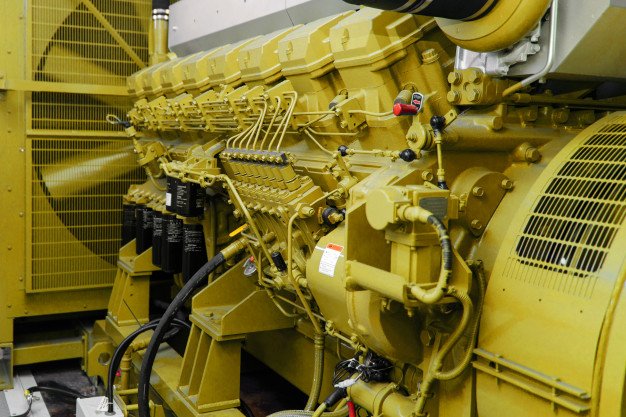9 Diesel Generator FAQs You Must Know About

Looking to buy a new diesel generator for your home/office power needs. What a novel thought! Before you move forth in your quest to find the right generator for your needs, you might want to take a gander at the below-mentioned FAQs associated with their diesel generators and the power generator industry as a whole. So, below is a list of 9 diesel generator FAQs that you must surely know about, in order to ensure the purchase of a perfect genset that meets your needs, whether that’s a permanent set up or standby generators in Northeast Ohio.
9 Diesel Generator FAQs To Know Before Buying One:-
Q1: How to choose the right generator size for my needs?
The size of your ideal generator is dependent on the number of appliances you want to charge via the genset during a power blackout. To pick the right size of the generator, measure the power requirement of each device separately, and then combine their power value to determine the overall power supply you need during a power outage.
Compare that power value with the power supply range depicted on the generator’s usual manual, or feel free to ask the same from your generator vendor.
Q2: Which lubricating/motor oil is best for my genset?
For most generators, 10W-30 or 15W-40, or 20W-50 motor oil is accessible from a car shop or any nearby service station in your local neighborhood. The particular prescribed motor oil for a specific brand/model will be situated in the guidance manual as well, so make use of the manual provided to you to determine the type of oil most suited to your generator type.
Q3: I’m having starting issues with my unit? What to do?
Check your generator manually for some easily traceable and fixable defaults such as the discharged battery, dirt & debris, a lack of fuel, or poor grade of fuel. However, if nothing seems wrong on the surface then it’s better to just have a professional take a look at the device. In most cases, starting problems with generators can arise with a lack of proper care and unscheduled maintenance routine.
Q4: Which is better; air-cooled or water-cooled generator?
It’s all dependent on the individual power demands that you may have. For instance, if you’re expecting to buy a portable energy source that’s good enough to answer your basic power needs (such as charging your cell phones, or smoothie-maker, ceiling fan), then buying an air-cooled generator type is good enough.
However, for power requirements incorporating the use of equipment such as air-conditioners, vacuum cleaners, etc, you’d be better off purchasing a water-cooled generator type. This is because water/fluid cooled generators are meant for a longer duration of usage and are capable of handling higher load conditions.
Q5: Is it okay if I charge sensitive devices too with the genset?
While technically you can, although you shouldn’t if the power outage is supposed to last for longer periods of time. Also, it’s all about the type of generator that you buy. For instance, a generator with a pre-installed AVR will take care of irregular voltage supply thereby preventing sensitive devices (such as laptops, room heaters. etc) from being damaged during an abrupt power surge.
Even with varying load conditions, an AVR will keep your vulnerable devices safe from potential harm.
Q6: What is an AVR & how is it important?
AVR, an acronym for Automatic Voltage Regulator and this regulator is a device used to stabilize the voltage output. This is crucial as due to change in load conditions, the value of voltage output keeps on fluctuating, and that without being kept under check can cause damage to the electrical system. Many new gensets are pre-installed with an AVR that automatically detects the load applied on the unit and can maintain a steady influx of voltage based on the need.
This is especially crucial when looking to operate sensitive equipment via your generator set, as without the use of an AVR, that equipment may operate in a faulty manner.
Q7: What does a power rating mean?
To get the best possible value out of a machine, it’s incredibly crucial to gander at the power rating. Many times, an owner might end up with a unit that’s too large or too small for his/her purposes, which ends up being unnecessarily costly. Estimated as being within the range from 0 to 1, the power factor alludes to the proportion among genuine and clear power values provided to an electrical circuit (in watts). It denotes the measure of energy you lose to electromagnetic fields.
Power rating is an important feature to consider when buying a diesel generator as a genset with a better power rating is more preferred. It ensures that the unit installed in your premises is exactly in sync with the needs of the place.
Q8: Single-phase v/s Three-phase generator; which one is good?
If you use a single-phase power supply for your homes, then it’s better to also go with a one-phase generator type, and similarly, a three-phase power structure will fuse better with a three-phase generator type.
Note that the only major difference between the two is that for a three-phase generator, it’s imperative that the load conditions are equal for all three phases, or else the three-phase system can suffer from overload (thereby causing damage). Always make sure to use a three-phase generator exclusively with a three-phase system.
Q9: I want to connect my diesel generator with my house equipment. How do I do it?
Don’t…! Connecting a generator isn’t one of the DIY tasks that you should bother with handling by yourself. Always contact an expert electrician, or ask the vendor from whom you buy the generator to get you in touch with an expert to properly install the generator and also connect the machine with equipment that needs to be operated during an extended period of a power blackout.
Conclusion
Another unwritten golden rule of “savvy generator purchase” involves buying your own generator from the most reliable supplier around, but that goes without saying. If you are not aware of any vendor with adequate credentials required, then at Ablesales, we make that job a whole lot easier, by being that knowledgeable and well-reputed genset supplier a






